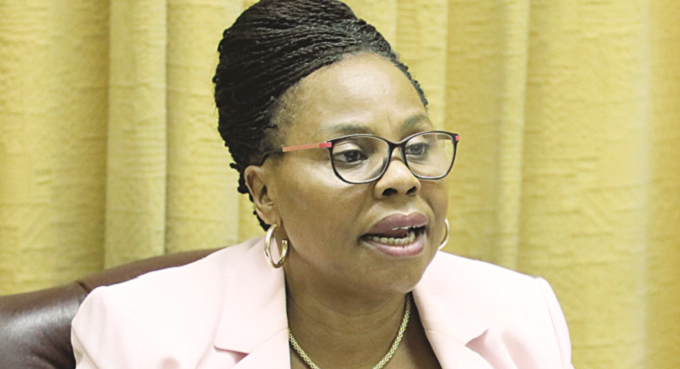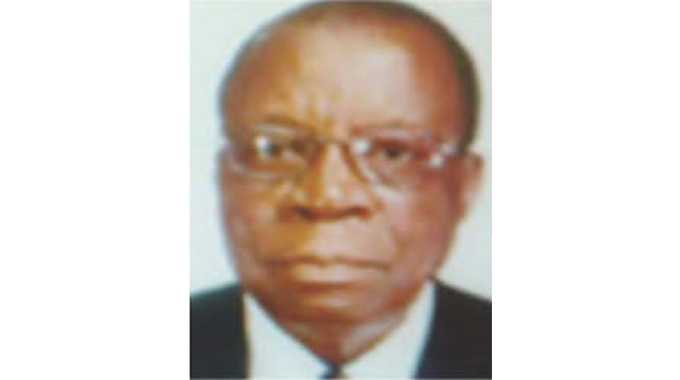Government steps up process to curb Covid-19 spread in schools

Thandeka Moyo-Ndlovu, Health Reporter
GOVERNMENT has stepped up surveillance mechanisms to curb the spread of Covid-19 in schools after 126 new infections were detected at Sacred Heart Primary School, as well as George Silundika and Thornhill high schools over the past week.
The three schools are located in the southern region and have been recording Covid-19 cases since beginning of first term on March 15.
Healthcare workers and Ministry of Primary and Secondary Education officials have already completed an enhanced training programme on infection prevention and control, surveillance, risk communication and community engagement.
The implementation of this strategy is set to yield results and reduce the spread of the virus among learners, said Information, Publicity and Broadcasting Services Minister Monica Mutsvangwa, in a post-Cabinet briefing yesterday.
“On confirmed Covid-19 cases in schools, Cabinet advises that 126 new infections were detected through the school’s surveillance system during the week under review,” she said.
“Among these were 77 additional cases at Sacred Heart Primary School, Matabeleland South, 46 at George Silundika High School in Matabeleland North and three at Thornhill High School, Midlands.
“Cabinet wishes to restate that any boarding school learners who test positive for Covid-19 should be isolated at their respective schools and should not be taken home,” Minister Mutsvangwa.
“Cabinet reiterates the position that there should be strict adherence to Covid-19 guidelines by all institutions of learning and those found flouting these will be disciplined accordingly.”
As at May 3, Zimbabwe’s cumulative Covid-19 cases stood at 38 293, with 35 647 recoveries and 1 578 deaths.
The recovery rate stands at 93 percent with 36 533 of cases being attributable to local transmission. So far, there are a total of 1 073 active cases.
Minister Mutsvangwa said the Law-and-Order Sub-Committee will step up surveillance and enforcements to deal with complacency noted in members of the public.
Cabinet also heard that each province has now developed a plan for implementation of enhanced infection prevention and control, surveillance, risk communication and community engagement.
Under this strategy, compliance with Standard Operating Procedures (SOPs) will be enhanced and buttressed by the standardised approach to the management of outbreaks in schools.
Minister Mutsvangwa said Cabinet was concerned about the upsurge in the use of unauthorised passenger-carrying vehicles that are not affiliated to Zupco on the roads. She said social distancing and other Covid-19 measures are hardly being observed by passengers in these vehicles.
“In order to curb this development, the Vehicle Inspectorate Department (VID), the Zimbabwe Republic Police (ZRP) and the Traffic Safety Council (ZTSC) are enhancing surveillance and enforcement.
“The nation is reminded that all beer halls, bars, pubs and nightclubs remain closed,” she said.
Cabinet has also highlighted that bottle stores should strictly open for takeaways, as required by the law while restaurants are expected to continue operating at 50 percent sit-in capacity with takeaways and deliveries.
“Cabinet approved that the operating times for restaurants be extended to 9PM,” she said.
In terms of vaccine update, Minister Mutsvangwa said as of 3 May 2021, a total of 437 751 people had received their first dose of the Covid-19 vaccine with 99 765 getting their second dose across the country.
“In order to improve capacity of the health service delivery in Zimbabwe, Cabinet advises that the Ministry of Health and Child Care intends to open up the Open-Heart-Surgeries and Radiotherapy services. This would be enhanced through partnerships with the private sector and local financing organisations,” said Minister Mutsvangwa.
“It is envisaged that the Public-Private-Partnerships (PPP) would enable the expansion of access to higher quality health care in services by leveraging on the capital, infrastructure, equipment and expertise from both the private sector and the public sector.”
In order to address power supply challenges experienced by health facilities, the minister said Cabinet adopted a proposal for the installation of solar backup energy kits at 640 health care centres. — @thamamoe.











Comments